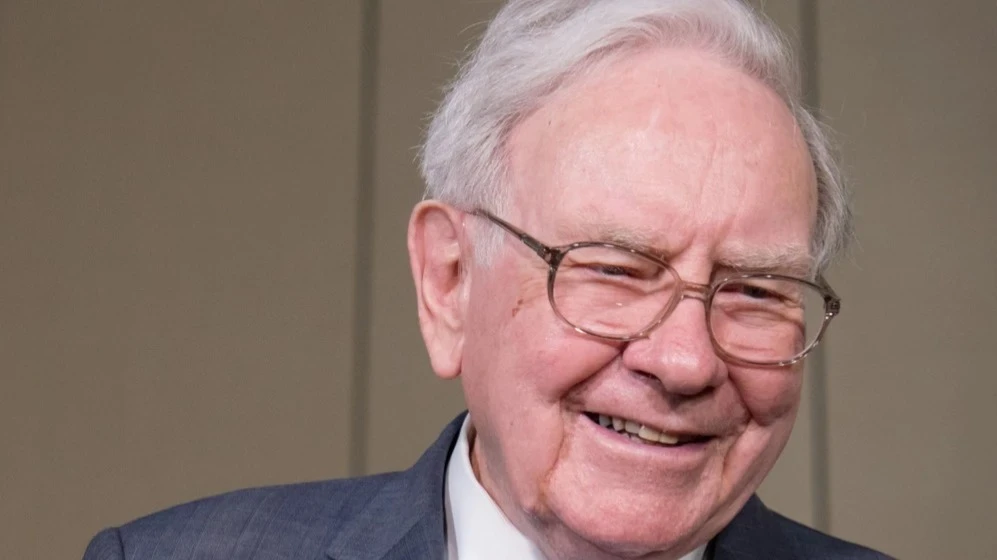Berkshire risks losing billions of dollars in interest after Fed rate cuts
The record amount of cash in Berkshire's accounts is not ballast but an option, believes James Brumley of The Motley Fool

Berkshire Hathaway could miss out on more than $3 billion in annual interest income if the Federal Reserve aggressively cuts rates next year. Warren Buffett's investment conglomerate is still the leader in terms of cash reserves among all non-banking companies in the United States. At the same time, the legendary investor emphasizes that Berkshire will always prioritize stock ownership over cash.
Details
Barron's estimates that a cumulative one percentage point drop in short-term rates would reduce Berkshire's annual interest income by more than $3 billion, assuming the amount of cash on its books remains unchanged. Adjusted for taxes, the loss could amount to about $2.5 billion. That's more than 5% of the company's annual operating profit, which is now approaching $45 billion.
As expected on Wall Street, the U.S. Federal Reserve at the end of the next meeting on September 16-17 will resume easing monetary policy, reducing the key rate by a quarter of a percentage point - to 4-4.25%. By the end of next year, short-term rates may fall to 3%, Barron's believes.
How it affects the stock
The prospect of lower rates is probably putting pressure on Berkshire's quotes as well, the publication notes. They continue to stagnate, while the S&P 500 updates record after record. Since January, Berkshire securities have risen in price by 8% against growth of 14% in the S & P 500.
An additional pressure factor for Berkshire may be the shift of Wall Street's investment preferences towards more aggressive "risky" securities, such as shares of technology companies. Buffett's company is traditionally considered one of the most defensive positions on the market. In addition, the weak performance of property and casualty insurance players in 2025 could also negatively impact Berkshire's quotes as the owner of the largest business in this sector by capital, the article said.
Why Buffett needs "fast" money.
Buffett believes in maintaining a high level of liquidity at Berkshire, although he acknowledged that its cash reserves exceed its needs. Berkshire's funds are mostly invested in short-term U.S. Treasury bills, securities with maturities of less than one year. "The Oracle of Omaha" has little investment in long-term bonds, which allow it to lock in yields for years during periods of high rates, and prefers to keep cash on hand.
In a letter to shareholders last year, Buffett warned that investment opportunities consistent with Berkshire's philosophy of buying good companies at fair prices have become rare. That said, the legendary investor continues to insist that Berkshire will always prioritize business ownership over cash. "Paper money could lose its value if fiscal recklessness prevails. (...) Businesses, on the other hand, like people with in-demand skills, tend to find a way to cope with monetary instability," he wrote to shareholders this year.
Whether to buy Berkshire stock
Berkshire Hathaway shares are worth buying right now - not in spite of their temporary weakness, but because of it, The Motley Fool analyst James Brumley wrote on September 16. He said the decline in quotes since the May peak, driven by investor doubts about "life after Buffett," who announced his retirement at the end of the year, creates a favorable entry point. After the legendary investor retires, his successor, Greg Abel, will retain the company's fundamentals and investment philosophy, Brumley believes. In addition, Berkshire conducted a portfolio cleanup in anticipation of the leadership change, and its huge cash reserves are not ballast but an option for favorable trades in the event of a correction, he added.
The consensus rating for Berkshire stock on Wall Street is "Above Market" (Overweight), which is equivalent to a buy recommendation. FactSet's calculated average target price for Berkshire's Class B shares available to the general public (Class A shares are extremely expensive) of $523.2 per share implies a potential upside of 6.4% over the next year.
This article was AI-translated and verified by a human editor
